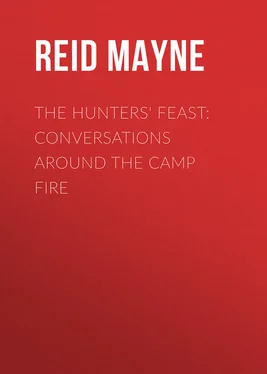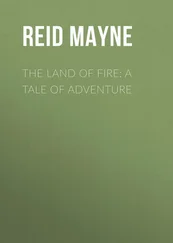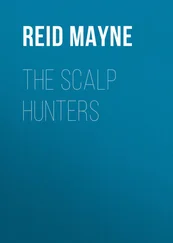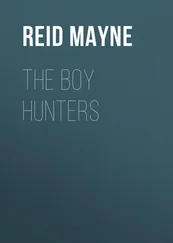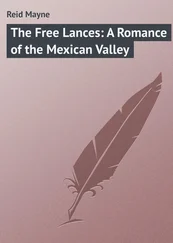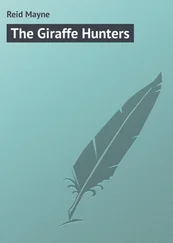Mayne Reid - The Hunters' Feast - Conversations Around the Camp Fire
Здесь есть возможность читать онлайн «Mayne Reid - The Hunters' Feast - Conversations Around the Camp Fire» — ознакомительный отрывок электронной книги совершенно бесплатно, а после прочтения отрывка купить полную версию. В некоторых случаях можно слушать аудио, скачать через торрент в формате fb2 и присутствует краткое содержание. Издательство: Иностранный паблик, Жанр: literature_19, foreign_antique, foreign_prose, на английском языке. Описание произведения, (предисловие) а так же отзывы посетителей доступны на портале библиотеки ЛибКат.
- Название:The Hunters' Feast: Conversations Around the Camp Fire
- Автор:
- Издательство:Иностранный паблик
- Жанр:
- Год:неизвестен
- ISBN:нет данных
- Рейтинг книги:5 / 5. Голосов: 1
-
Избранное:Добавить в избранное
- Отзывы:
-
Ваша оценка:
- 100
- 1
- 2
- 3
- 4
- 5
The Hunters' Feast: Conversations Around the Camp Fire: краткое содержание, описание и аннотация
Предлагаем к чтению аннотацию, описание, краткое содержание или предисловие (зависит от того, что написал сам автор книги «The Hunters' Feast: Conversations Around the Camp Fire»). Если вы не нашли необходимую информацию о книге — напишите в комментариях, мы постараемся отыскать её.
The Hunters' Feast: Conversations Around the Camp Fire — читать онлайн ознакомительный отрывок
Ниже представлен текст книги, разбитый по страницам. Система сохранения места последней прочитанной страницы, позволяет с удобством читать онлайн бесплатно книгу «The Hunters' Feast: Conversations Around the Camp Fire», без необходимости каждый раз заново искать на чём Вы остановились. Поставьте закладку, и сможете в любой момент перейти на страницу, на которой закончили чтение.
Интервал:
Закладка:
“I did not lose a moment’s time; I was full of energy: hope had given me new life. My gun was loaded – a huge crocodile that swam near the shore received the shot in his eye. I dragged him on the beach; with my knife I laid open his entrails. Few they were, but enough for my purpose. A plume-quill from the wing of the ibis served me for a blow-pipe. I saw the bladder-like skin expand, until I was surrounded by objects like great sausages. Those were tied together, and fastened to my body, and then, with a plunge, I entered the waters of the lake, and floated downward. I had tied on my life-preservers in such a way that I sat in the water in an upright position, holding my gun with both hands. This I intended to have, used as a club in case I should be attacked by the alligators; but I had chosen the hot hour of noon, when these creatures lie in a half-torpid state, and to my joy I was not molested.
“Half an hour’s drifting with the current carried me to the end of the lake, and I found myself at the debouchure of the bayou. Here, to my great delight, I saw my boat in the swamp, where it had been caught and held fast by the sedge. A few minutes more, and I had swung myself over the gunwale, and was sculling with eager strokes down the smooth waters of the bayou.
“Of course my adventure was ended, and I reached the settlement in safety, but without the object of my excursion. I was enabled, however, to procure it some days after, and had the gratification of being able to keep my promise to my friend.”
Besançon’s adventure had interested all of us; the old hunter-naturalist seemed delighted with it. No doubt it revived within him the memories of many a perilous incident in his own life.
It was evident that in the circle of the camp-fire there was more than one pair of lips ready to narrate some similar adventure, but the hour was late, and all agreed it would be better to go to rest. On to-morrow night, some other would take their turn; and, in fact, a regular agreement was entered into that each one of the party who had at any period of his life been the hero or participator in any hunting adventure should narrate the same for the entertainment of the others. This would bring out a regular “round of stories by the camp-fire,” and would enable us to kill the many long evenings we had to pass before coming up with the buffalo. The conditions were, that the stories should exclusively relate to birds or animals – in fact, any hunted game belonging to the fauna of the American Continent: furthermore, that each should contribute his quota of information about whatever animal should chance to be the subject of the narration – about its habits, its geographical range; in short, its general natural history, as well as the various modes of hunting it, practised in different places by different people. This, it was alleged, would render our camp conversation instructive as well as entertaining.
The idea originated with the old hunter-naturalist, who very wisely reasoned that among so many gentlemen of large hunting experience he might collect new facts for his favourite science – for to just such men, and not to the closet-dreamer, is natural history indebted for its most interesting chapters. Of course every one of us, guides and all, warmly applauded the proposal, for there was no one among us averse to receiving a little knowledge of so entertaining a character. No doubt to the naturalist himself we should be indebted for most part of it; and his mode of communicating was so pleasant, that even the rude trappers listened to him with wonder and attention. They saw that he was no “greenhorn” either in woodcraft or prairie knowledge, and that was a sufficient claim to their consideration.
There is no character less esteemed by the regular “mountain-man” than a “greenhorn,” – that is, one who is new to the ways of their wilderness life.
With the design of an early start, we once more crept into our several quarters, and went to sleep.
Chapter Four.
The Passenger-Pigeons
After an early breakfast we lit our pipes and cigars, and took to the road. The sun was very bright, and in less than two hours after starting we were sweltering under a heat almost tropical. It was one of those autumn days peculiar to America, where even a high latitude seems to be no protection against the sun, and his beams fall upon one with as much fervour as they would under the line itself. The first part of our journey was through open woods of black-jack, whose stunted forms afforded no shade, but only shut off the breeze which might otherwise have fanned us.
While fording a shallow stream, the doctor’s scraggy, ill-tempered horse took a fit of kicking quite frantical. For some time it seemed likely that either the doctor himself, or his saddle-bags, would be deposited in the bottom of the creek, but after a severe spell of whipping and kicking on the part of the rider, the animal moved on again. What had set it dancing? That was the question. It had the disposition to be “frisky,” but usually appeared to be lacking in strength. The buzz of a horse-fly sounding in our ears explained all. It was one of those large insects – the “horse-bug,” – peculiar to the Mississippi country, and usually found near watercourses. They are more terrible to horses than a fierce dog would be. I have known horses gallop away from them as if pursued by a beast of prey.
There is a belief among western people that these insects are propagated by the horses themselves; that is, that the eggs of the female are deposited upon the grass, so that the horses may swallow them; that incubation goes on within the stomach of the animal, and that the chrysalis is afterwards voided. I have met with others who believed in a still stranger theory; that the insect itself actually sought, and found, a passage into the stomach of the horse, some said by passing down his throat, others by boring a hole through his abdomen; and that in such cases the horse usually sickened, and was in danger of dying!
After the doctor’s mustang had returned to proper behaviour, these odd theories became the subject of discussion. The Kentuckian believed in them – the Englishman doubted them – the hunter-naturalist could not endorse them – and Besançon ignored them entirely.
Shortly after the incident we entered the bottom lands of a considerable stream. These were heavily-timbered, and the shadow of the great forest trees afforded us a pleasant relief from the hot sun. Our guides told us we had several miles of such woods to pass through, and we were glad of the information. We noticed that most of the trees were beech, and their smooth straight trunks rose like columns around us.
The beech ( Fagus sylvatica ) is one of the most beautiful of American forest trees. Unlike most of the others, its bark is smooth, without fissures, and often of a silvery hue. Large beech-trees standing by the path, or near a cross road, are often seen covered with names, initials, and dates. Even the Indian often takes advantage of the bark of a beech-tree to signalise his presence to his friends, or commemorate some savage exploit. Indeed, the beautiful column-like trunk seems to invite the knife, and many a souvenir is carved upon it by the loitering wayfarer. It does not, however, invite the axe of the settler. On the contrary, the beechen woods often remain untouched, while others fall around them – partly because these trees are not usually the indices of the richest soil, but more from the fact that clearing a piece of beech forest is no easy matter. The green logs do not burn so readily as those of the oak, the elm, the maple, or poplar, and hence the necessity of “rolling” them off the ground to be cleared – a serious thing where labour is scarce and dear.
Читать дальшеИнтервал:
Закладка:
Похожие книги на «The Hunters' Feast: Conversations Around the Camp Fire»
Представляем Вашему вниманию похожие книги на «The Hunters' Feast: Conversations Around the Camp Fire» списком для выбора. Мы отобрали схожую по названию и смыслу литературу в надежде предоставить читателям больше вариантов отыскать новые, интересные, ещё непрочитанные произведения.
Обсуждение, отзывы о книге «The Hunters' Feast: Conversations Around the Camp Fire» и просто собственные мнения читателей. Оставьте ваши комментарии, напишите, что Вы думаете о произведении, его смысле или главных героях. Укажите что конкретно понравилось, а что нет, и почему Вы так считаете.
